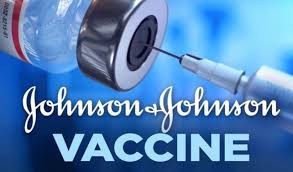Is Johnson And Johnson Vaccine Safe?

The J&J vaccine (also called the Johnson & Johnson’s Janssen COVID-19 vaccine) uses an inactivated cold virus to carry genetic material, which prompts your cells to create a harmless piece of the “spike protein” found on the surface of COVID-19. This helps the body build an immune response against the coronavirus that causes COVID-19. These types of vaccines have been around for years and are generally safe for large populations of people.
The Johnson and Johnson COVID-19 vaccine is the third COVID-19 vaccine that the Food and Drug Administration (FDA) authorized for emergency use. Here are some important information about the Johnson and Johnson (J&J) COVID-19 vaccine you should know:
- The J&J COVID-19 vaccine only requires one dose instead of two.
- This vaccine uses viral vector technology instead of mRNA.
- Clinical trials found that this vaccine was effective at preventing both mild to moderate COVID-19 as well as severe COVID-19. They also indicated that the vaccine is effective for some COVID-19 variants.
- The J&J COVID-19 vaccine shares common side effects with the other COVID-19 vaccines, such as injection site reactions, headache, and fatigue.
- Although a very small number of serious blood clots have been reported following vaccination, the risk of these happening is very low.
Is Johnson And Johnson vaccine safe?
Johnson And Johnson vaccine is generally considered safe. However, about 100 preliminary reports of Guillain-Barré have been detected among the 12.8 million doses administered of the J&J vaccine in the United States, according to the CDC. The cases have largely been reported about two weeks after receiving the J&J vaccination and mostly in men 50 years and older.
According to the Centers for Disease Control and Prevention (CDC), the chance of having this occur is very low and the benefits of the vaccine continue to outweigh the risks.” It also notes that patients should immediately seek medical care if they “develop any of the following symptoms after receiving the Jannsen COVID-19 vaccine:
• Weakness or tingling sensations, especially in the legs or arms, that’s worsening and spreading to other parts.
• Difficulty walking.
• Difficulty with facial movements, including speaking, chewing, or swallowing.
• Double vision or inability to move eyes.
• Difficulty with bladder control or bowel function.”
Why was the Johnson and Johnson COVID-19 vaccine stopped?
The Centers for Disease Control and Prevention (CDC) and the FDA recommended a pause of the J&J COVID-19 vaccine on April 13, 2021. At the time of the pause, about 6.8 million doses of the vaccine had been given.
The purpose of this pause was to further investigate rare blood clots that had been reported after vaccination. It also served to inform healthcare professionals on how to identify and treat these clots, should they occur.
What are these clots?
The reported blood clots occurred in the large blood vessels of the brain or abdomen and were associated with low platelet counts. The medical term for this condition is thrombosis with thrombocytopenia syndrome (TTS).
Who got these clots?
Six instances of TTS, including one death, had been reported at the time of the pause. All of these cases involved women between ages 18 and 48 years old. Symptoms of TTS began 1 to 2 weeks after receiving the J&J COVID-19 vaccine.
At the time of writing, nine further instances of TTS have been reported, according to the FDA. Two of these additional cases were associated with deaths.
Was the pause lifted?
Yes. On April 23, 2021, the pause on the J&J COVID-19 vaccine was lifted. After thoroughly reviewing the data on the reported cases of clots developing, the CDC and the FDA concluded that the known benefits of the J&J COVID-19 vaccine outweighed its potential risks.
Should I be concerned?
TTS is a very rare side effect of the J&J COVID-19 vaccine. According to the CDC, it occurs at a rate of 7 per 1 million female individuals between the ages of 18 and 49 years. Female individuals over age 50 years and male individuals are at an even lower risk. If you’re female and you’re under 50 years old, it’s important to be aware of the risk of these blood clots as well as their potential symptoms.
You can find additional useful information on: Is It Safe To Take Paracetamol Before Receiving The Covid-19 Vaccine?





